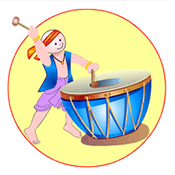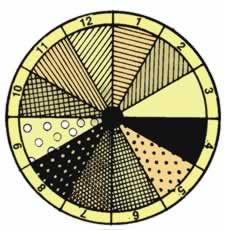
Dimdima
Online Children's Magazine from India

Dimdima
Online Children's Magazine from India

We know that insects visit flowers to collect nectar and thereby help in 'pollination' which is essential for the survival of plants.
What is amazing is that plants and their “insect visitors” seem to have a 'time agreement' which is precise to the hour. It is only during this agreed period that the insects visit the flowers, and the flowers in their turn, produce the nectar and pollen so that neither the visit of the insects, nor the pollen is wasted. This clock evidently is quite independent of the weather.
Based on this finding the Swedish botanist Carl Linnaeus planted a flower clock in his garden. Carefully chosen plants were arranged in segments around a circle in the order of their blooming time.
The Plant Clock always told the right time for at each hour the flowers of only one species would be open!
Last updated on :2/14/2006
EXPLORE MORE...
COMMENT ON THIS ARTICLE
Wants to share something related to this article? Please use the form below.
Dimdima is the Sanskrit word for ‘drumbeat’. In olden days, victory in battle was heralded by the beat of drums or any important news to be conveyed to the people used to be accompanied with drumbeats.
Bharatiya Vidya Bhavan
K. M Munshi Marg,
Chowpatty, Mumbai - 400 007
email : editor@dimdima.com
Bharatiya Vidya Bhavan
505, Sane Guruji Marg,
Tardeo, Mumbai - 400 034
email : promo@dimdima.com
Dimdima.com, the Children's Website of Bharatiya Vidya Bhavan launched in 2000 and came out with a Printed version of Dimdima Magazine in 2004. At present the Printed Version have more than 35,000 subscribers from India and Abroad.